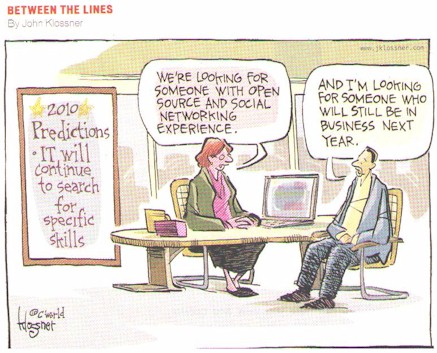Is the job market picking up? If headhunter activity is any measure (and I’m not sure it is), then maybe hiring activity is on the upswing…
A reader asks:
A recruiter I know (but have never met in person) called me about a position. I told him I was interested based on the description, reporting chain, location and salary range. After our conversation, he talked to his client about me. Before asking for my resume, the client asked him what my previous salary had been, which was about $30K more than this position’s upper limit.
Without asking me and without having received my permission previously, the recruiter divulged my salary, and the client would not proceed further based on the fact that I was “too expensive.”
Again, I knew the range of the position and had told the recruiter specifically that I was fine with that salary range. As far as I am concerned, the recruiter had no right whatsoever to divulge my salary, which I consider confidential. I believe this was a breach of ethics. What do you say?
This is very common. Once a headhunter gets your “permission” (translation: interest) regarding a position, he’s likely to discuss you in detail with his client, and any info you provided is fair game.
Remember that the headhunter’s fiduciary duty is to his client, not to you. That said, headhunters are dopes when they do what this one did. He could easily have told his client that he needed to confirm your salary history and call back with the information — and in the meantime discussed the position with you as well as how to handle your salary history with your permission. But this headhunter seems to be the client’s puppy — eager to please, loathe to take time to be a good advisor to his client. Puppy-dog headhunters are such pushovers that they do a disservice to their clients. You might have been an outstanding hire, but the client will never get a chance to find out. And that costs the headhunter, too.
He should have asked your permission before divulging your salary. But like most HR people, headhunters consider salary info no big deal. Worse, they quickly use it to decide whether a candidate is “a fit.”
And that’s stupid.
Next time, be explicit about what info you want kept confidential when you talk to a headhunter. So, yah, I think it’s an ethical breach, but it’s “industry standard” with too many headhunters.
If you want to know more about the in’s and out’s of dealing with headhunters, check out How to Work with Headhunters.
.

